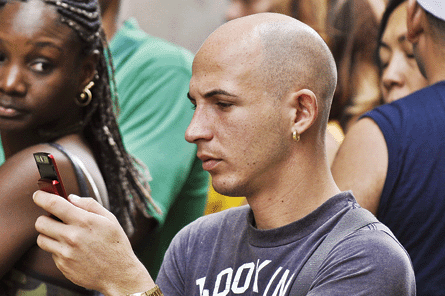Reading Time: 2 minutes“I’m not a communist” the cab driver said shortly after I identified myself as an American. In the short ride from Habana Vieja to my casa particular in Vedado, he added “I am not a capitalist either. I’m a progressive.” When I ask if his political stance causes any problems, he drives a few blocks past my destination to explain himself: he doesn’t plan on leaving Cuba, and he’s hopeful the U.S. embargo may end soon and things at home will change. As I got out of the car, he says “viva el progresismo!”
The theme of change comes up often in conversations in Cuba. Fifty years after the Revolution, it seems like a place exhausted from existing perpetually on the brink of change. I spent a week on the island a year after Fidel’s resignation, and a month after President Barack Obama’s inauguration. For many, President Obama represents change in U.S. policy toward Cuba. How that translates to real change on the island is less clear.
Change can mean different things, depending on who is talking about it. For some it means travel abroad, for others stocked shelves and shorter lines and still others it means political freedom. For many it also invokes fear of a return to a pre-Revolution Cuba, where foreigners use the island as a playground while some Cubans go without basic services like health care and primary education. I met many Cubans who agreed with the official government line that the United States had to take the first steps (like ending the 47-year-old embargo) if it wanted better relations. Meanwhile, others were seizing opportunities on their own to test the government’s promise of change. But on an island that appears frozen in time with ancient cars, crumbling facades and cobbled streets, the prospects for a major shift still seem distant 50 years after the Revolution.
Since Castro’s resignation in February 2008 and his brother Raúl’s assumption of power, there have been tantalizing hints of reform. Citizens were allowed for the first time to own cell phones. The Sopranos aired on Cuban television. But while such policy shifts made headlines across the globe, little has actually changed in the day-to-day lives of ordinary Cubans. Cubans still wait in long lines to receive rationed food, few can actually afford the cell phones they are allowed to have, and foreign travel is still largely prohibited…
Read a Letter to the Editor submitted in response to this article.
Like what you've read?
Subscribe to AQ for more.
Any opinions expressed in this piece do not necessarily reflect those of Americas Quarterly or its publishers.





